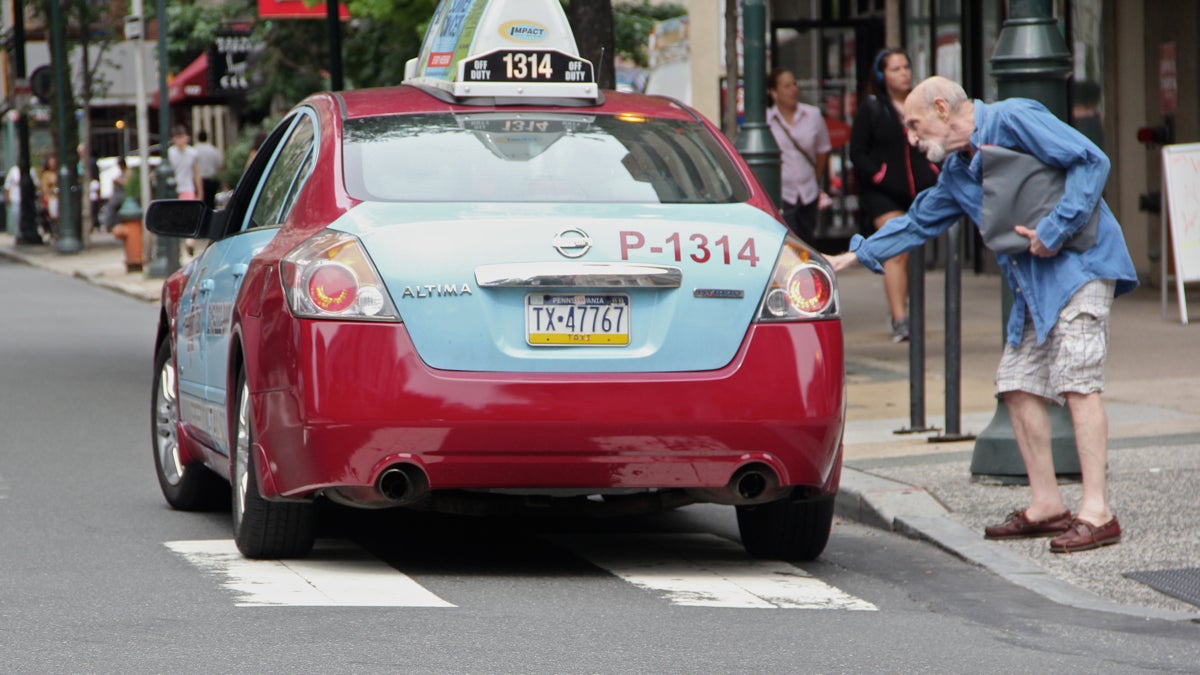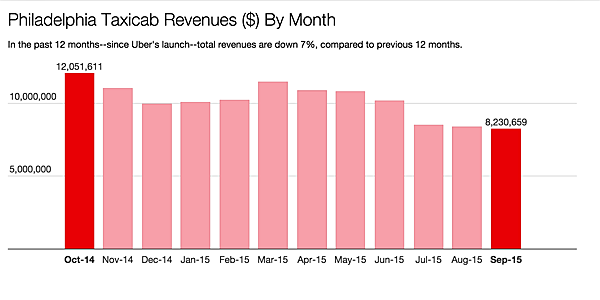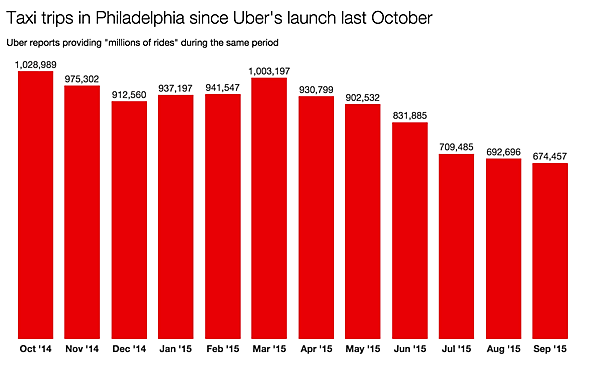With Uber gaining on Philly taxi turf, Pa. moves to regulate ride-sharing services
Listen
(Emma Lee/WHYY)
It has been a bad year for Philadelphia taxi drivers.
Since ride-sharing company Uber launched in the city last October, the number of trips in traditional cabs is down 7.5 percent compared with the previous 12 months. Total revenue is also off 7 percent, according to data provided by the Philadelphia Parking Authority, which regulates the fleet of 1,600 medallion taxis.

“I think what that shows is before Uber entered the market, there really weren’t transportation options out there meeting the consumer demand,” said Uber spokesman Taylor Bennett. “When we entered — offered a new alternative — something that was easy, convenient and safe, and reliable every time you needed it, consumers spoke, and they spoke with their fingertips requesting those rides.”
Uber reported completing “millions” of trips during the past year, and says it now has 12,000 drivers operating in the city.
All this success, despite the fact that ride-sharing remains illegal within Philadelphia.
“It’s been hurting drivers since Day 1,” said Danielle Friedman, general counsel for the Pennsylvania Taxi Association, which represents more than 1,000 taxi drivers.
“There’s so many cars on the road, there’s too much competition, and everyone is just getting a smaller piece of the pie.”
The PPA has fought ride-sharing’s entry into the city, organizing sting operations involving mounted police and filing lawsuits. Cabbies have also organized around the issue, comparing Uber drivers with bootleggers for their brazen defiance of the law.
Legislation now working its way through Harrisburg would legalize and regulate ride-sharing statewide. Sen. Camera Bartolotta, the lead sponsor, said it’s a service people want, especially in rural areas and neighborhoods traditionally underserved by taxis.
“We have to make sure that the customers are protected. We need to make sure that the drivers have adequate insurance, and that they have a background check, so we aren’t putting consumers in jeopardy,” said Bartolotta, R-Washington.
The current version of the bill, which cleared a Senate committee Tuesday, would levy a 1 percent tax on all rides within Philadelphia, allotting two-thirds of the revenue to the city’s schools, with the balance going to the PPA.
Drivers for services including Uber and Lyft would also be prohibited from collecting passengers from Philadelphia International Airport, as well as from taxi stands around the city.
“There are places where their bread is buttered, and we are going to keep the [ride-sharing services] out of those situations,” said Bartolotta.
Still, Friedman with the Pennsylvania Taxi Association said that’s not enough to level the playing field. Cabs would still face additional regulations, such as the inability to surge prices when demand is high.
“Taxi cab drivers, taxi cab owners, are small, mom-and-pop businesses, and we are not $50 billion companies being backed by Wall Street. So I think fairness is really what’s at heart here,” she said.

WHYY is your source for fact-based, in-depth journalism and information. As a nonprofit organization, we rely on financial support from readers like you. Please give today.




